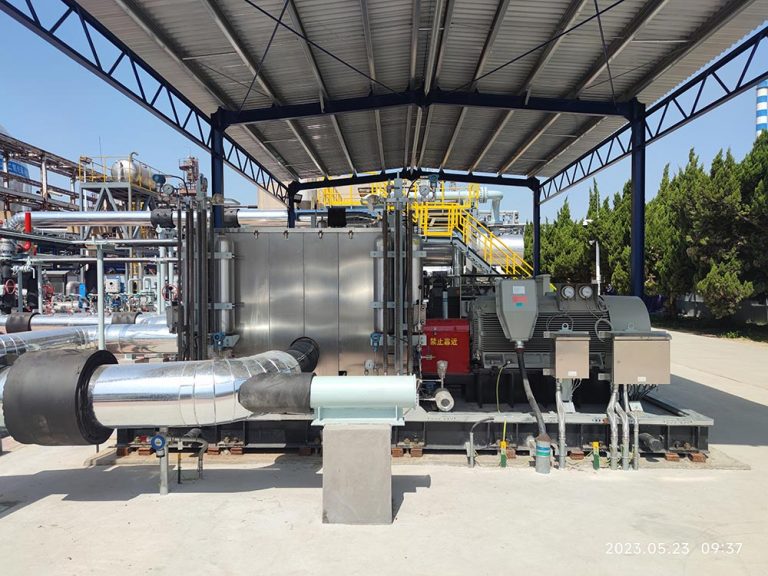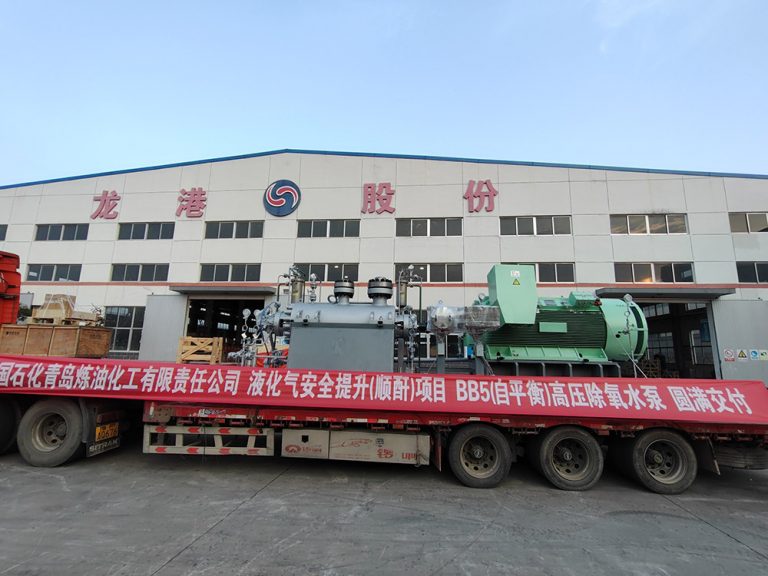When you’re choosing a pump that fits your requirements precisely, you might come across a range of choices with designs and features. Two popular pump varieties you might encounter are canned motor pumps and centrifugal pumps. These pumps are both used to transport fluids but work based on principles. This article will discuss the distinctions between these two types discuss their benefits and typical uses and offer guidance for selecting the right pump for your needs.

Knowing Canned Motor Pumps
In industries nowadays are being used widely due to their innovative design and characteristics. Canned motor pumps are distinct because they combine the motor and pump into one unit unlike conventional pumps where the motor is separate, by learning about what canned motor pumps are advantages they offer and where they can be used you can figure out whether they suit your pumping requirements or not.
Definition and Functionality
Canned motor pumps are a kind of pump that combines the motor and pump into one unit without the use of shaft seals, aiming to prevent leaks and reduce maintenance needs by enclosing the motor in a sealed can to contain the pumped fluid securely.
Advantages of Canned Motor Pumps
Considering structure and less chance of leakage, canned motor pumps have a number of advantages. Without seals, they are more reliable and have lower maintenance costs. These pumps are valued for their performance and efficient handling of hazardous or harmful liquids.
Common Applications
These types of pumps will always be in high demand in sectors related to leak avoidance, such as chemical processing, petrochemical plants and atomic electricity-generation facilities, where safety plays a major concern due to the use of toxic fluids.
Knowing Centrifugal Pumps
Centrifugal pumps are commonly employed to transfer fluids and acquiring knowledge regarding, their principles and structure will enable you to understand their respective merits and applications and facilitate you in judging what type will best serve your needs.
Basic Principles and Design
Centrifugal pumps obtain their operating principle by converting energy into hydraulic energy by the use of centrifugal force. It consists of a casing, which holds a rotating impeller inside of it, thus drawing fluid into the center while forcing it out with pressure through the outlet.
Advantages of Centrifugal Pumps
The centrifugal pumps enjoy a very good reputation concerning simplicity and efficiency in the handling of fluid quantities for a wide range of applications because of their versatility with different types of fluids, clean water and chemicals.
Applications Common
These pumps are applied to various industries, like water supply systems and power generation, other than oil refining and chemical processing sectors.
Key Differences Between Canned and Centrifugal Pumps
When it comes to moving fluids from one place to another, using pumps such as centrifugal pumps there are some key variations in how they are built and how they perform in terms of safety and the environment to take into account which can help you decide which pump type is best suited for your needs.
Structural Differences
Integrated motor pumps are designed such that the motor is enclosed in a unit to prevent leakage, while in centrifugal pumps, each component is separate, connected by shafts with seals where leaks could happen due to design differences in the configuration. This will affect their efficiency in the field of operation concerning fluid handling, depending on particular needs.
Performance and Efficiency
Because of the sealless design, canned motor pumps are better than other pumps in situations where leakage prevention is important, but they may not compete in the pressure head capacity with centrifugal pumps, which have greater pressure capabilities to move fluids over long distances or under high-pressure conditions.
Safety and Environmental Considerations
Dangerous liquids are handled through a closed-off structure of the canned motor pump without causing contamination problems in the environment. Although centrifugal pumps require more care in sealing maintenance to prevent leakage, the sealing options that can be adaptable for specific demands in usage remain open.
Choosing the Right Pump Technology for Your Needs
Choosing the pump for your specific application will require a thorough assessment of the operational environment and project specifications involved. Both canned motor pumps and centrifugal pumps offer benefits that should be considered, which can result in improved efficiency, safety and cost-effectiveness of your operations.
Factors to Consider
When choosing between a canned motor pump and a centrifugal pump, take into account these aspects:
- If you’re dealing with harmful liquids, like hazardous or corrosive substances, a sealed motor pump that prevents leaks could be a suitable option to consider. For risky and thinner liquids centrifugal pumps might be a more suitable choice to go for.
- If you’re looking for a pump that can handle flow rates and increased pressure levels effectively a centrifugal pump might be the way to go. However,if your specific application calls for flow rates and less pressure a canned motor pump could do the job just fine.
- Maintenance needs differ between canned motor pumps and centrifugal pumps,canned motor pumps entail upkeep compared to centrifugal pumps which may necessitate more frequent maintenance due to their distinct components and seals.
- Centrifugal pumps usually come at a price compared to canned motor pumps but it’s important to factor in the overall operational costs in the long run such as maintenance and energy usage.
- If your project must adhere to environmental rules and regulations concerning the environment you might find a canned motor pump with a leak-free design to be the preferred choice.
Long-term Operational Implications
When selecting a pump for your needs in the run, it’s important to think about factors like energy efficiency, maintenance costs and how reliable it is. Opting for canned motor pumps can help you save on operating costs, because their energy-low maintenance features. On the other hand, centrifugal pumps are known for their durability and ability to handle higher flow rates making them a good choice for tasks that require greater throughput. Take all these long-term aspects into account when deciding on the pump for your requirements.
Yantai Longgang Pump Industry Co., Ltd.: Your Reliable Canned Motor Pump Supplier
Yantai Longgang Pump Industry Co., Ltd. is a provider of canned motor pumps that offer a diverse selection of top-notch pumps that are leakproof and cater to sectors like chemical processing as well as oil and gas industries. Their pumps are highly regarded for their effectiveness in operation and safety features that adhere to industry benchmarks for quality performance. Backed by expertise and a dedication to meeting customer needs effectively the team at Yantai, Longgang delivers customized solutions designed specifically for your requirements, ensuring sustained efficiency and outstanding performance over time.

FAQs
Here are some common inquiries people often make about canned motor pumps and centrifugal pumps:
1. When should I choose a centrifugal pump over a canned motor pump?
When your project requires flow rates and head pressures in the setup of the system, a centrifugal pump may be the way to go, also suitable for viscous and safer fluids situations.
2. Are canned motor pumps more energy-efficient than centrifugal pumps?
Canned motor pumps are recognized for their energy efficiency as they work at optimal efficiency thanks to their sealed design that minimizes both energy usage and operational expenses.
3. Is it safe to use pumps for handling dangerous liquids?
Centrifugal pumps can handle fluids. However, they need robust sealing mechanisms and regular maintenance to avoid leaks.








